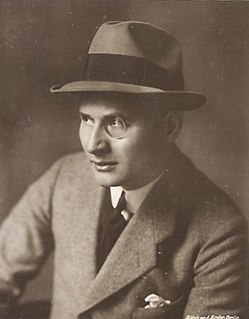This Weimar Timeline charts the chronology of the Weimar Republic, dating the pre-history before the adoption of the actual Weimar constitution. This timeline stops when Hitler establishes the Third Reich.

The 6th Panzer Division was an armoured division in the German Army, the Heer, during World War II, established in October 1939.
The 25th Division, officially the Grand Ducal Hessian (25th) Division, was a unit of the Prussian/German Army. It was headquartered in Darmstadt, the capital of the Grand Duchy of Hesse. The division was subordinated in peacetime to XVIII Army Corps when that corps was formed in 1899. The division was disbanded in 1919, during the demobilization of the German Army after World War I.
Generalleutnant Kurt-Bertram von Döring was a German World War II Generalleutnant of Luftwaffe. He began his career as a flying ace in World War I, became a flying soldier of fortune during the 1920s and early 1930s, and then joined the resurgent German air service and served through World War II.
This is the German Army order of battle on the outbreak of World War I in August 1914.

Harry Dwight Chamberlin was a career officer in the United States Army. A veteran of the Moro Rebellion, Pancho Villa Expedition, World War I, and World War II, he attained the rank of brigadier general, and was most notable for his command of several Cavalry units, including 1st Squadron, 8th Cavalry Regiment, 1st Squadron, 14th Cavalry Regiment, 2nd Cavalry Regiment, the Cavalry Replacement Center at Fort Riley, and 4th Cavalry Brigade, 2nd Cavalry Division. During World War II, he commanded the New Hebrides Task Force, Southwestern Security District, and Fort Ord.
Walter Scherff was a German army officer and military historian with the rank of Generalmajor, who was appointed by Adolf Hitler to the Oberkommando der Wehrmacht in May 1942 to compile the history of the war, as the Führer's Commissioner for the Writing of Military History.

Julius Falkenstein was a German stage and film actor of the silent era. He appeared in more than 180 films between 1914 and 1933. Falkenstein was Jewish, but secured a special permit to continue making films following the Nazi rise to power in 1933. He died of natural causes the same year, having made only one further film.
The 5th Division was a unit of the Reichswehr.
The 2nd Division was a unit of the Reichswehr.
The 3rd Division was a unit of the Reichswehr.
The 4th Division was a unit of the Reichswehr.
The 6th Division was a unit of the Reichswehr.
The 7th Division was a unit of the Reichswehr.
The 2nd Cavalry Division was a unit of the Reichswehr, the armed forces of Germany during the Weimar Republic.
The 3rd Cavalry Division was a unit of the Reichswehr, the armed forces of Germany during the Weimar Republic. It consisted of 6 cavalry regiments, the 13th (Prussian), the 14th, 15th, 16th, and the 17th (Bavarian) and the 18th (Saxonian) Cavalry Regiments.
The 1st Division was a unit of the Reichswehr, the armed forces of Germany during the Weimar Republic.
Hans-Hellmuth Pfeifer was a German general during World War II. A veteran of World War I, he held higher command positions in WWII, among other, that of the 65th Infantry Division in Italy, selecting its hand grenade symbol which earned the nickname "The Hand Grenade Division."
Generalleutnant Walter von Hippel (Luftwaffe) was a general in the Luftwaffe of Nazi Germany during World War II who commanded several flak divisions. He was also a recipient of the Knight's Cross of the Iron Cross.

Jan Franciszek Gaładyk was a Polish Infantry Colonel who was known for being one of the main commanders at the Battle of Węgierska Górka as well as commanding the 1st Mountain Brigade during the Invasion of Poland.



